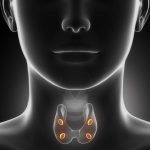Study Supports Low-Carb Diet in Management of Type 1 Diabetes
Node Smith, ND
A recent study has dug up the historical practice of carbohydrate restriction in type 1 diabetes management and shown it to be effective at decreasing insulin requirements as well as improving patient satisfaction with the management of their diabetes.1
Carbohydrate restriction in type 1 diabetes is quite controversial, however, the authors of the study point out that this approach to diabetes management is not new. Historically, low-carb diets were used very successfully for the treatment of type 1 diabetes, sometimes extending children’s lives for years. With the invention of insulin, it simply fell out of favor.
Study is published in the journal Pediatrics
THIS STUDY IS IN NO WAY ADVOCATING THE ELIMINATION OF INSULIN AS PART OF MANAGING TYPE 1 DIABETES. The study questions whether less insulin may be utilized, and quality of life increased with the use of carb-restriction along with insulin.
The study is published in the journal Pediatrics.
Interesting Study Model
The study model is incredibly innovative, utilizing a facebook community called TypeOneGrit, to collect data from an online patine survey. This community is committed to the use of a very-low-carb-diet (VLCD) as part of a diabetes management protocol recommended by Richard Bernstein, MD (Dr. Bernstein is co-author on the study).
493 people took the survey
A total of 493 people took the survey. Of this number, 316 gave enough information to be included in the study. A total of 138 patients were able to have diabetes confirmed, blood sugar control measures assessed, metabolic markers and other health outcomes reviewed. 42% were children.
Average daily carbohydrate intake was 36 grams
The average daily carbohydrate intake was 36 grams (this equates to about 5 percent of total calories, compared to roughly 45 percent in a typical diet).
Individuals using a VLCD were found to require less than the average dose of insulin
Individuals using a VLCD were found to require less than the average dose of insulin (mean – 0.40 U/kg/day). A favorable insulin sensitivity and cardiovascular health was also noted in patients for whom this information was available – such as low triglycerides and high HDL.
Study also supported the safety of a VLCD (with the use of insulin)
The study also supported the safety of a VLCD (with the use of insulin). Rates of hospitalizations for hypoglycemia and ketoacidosis were 1 and 2 percent, respectively. This is lower than what is typically reported in the general type 1 diabetic population.
Satisfaction with treatment management was higher than 80 percent
The satisfaction with treatment management was higher than 80 percent. However, many of the respondents (about 25 percent) said that they were concerned to discuss this approach with their diabetes care provider. Reasons for this ranged from not wanting to be criticized to worries about being accused of child abuse.
Source:
- Lennerz BS, Barton A, Bernstein RK, et al. Management of Type 1 Diabetes With a Very Low–Carbohydrate Diet. Pediatrics. May 2018, e20173349; DOI: 10.1542/peds.2017-3349
Image Copyright: <a href=’https://www.123rf.com/profile_katesmirnova’>katesmirnova / 123RF Stock Photo</a>
 Node Smith, ND, is a naturopathic physician in Portland, OR and associate editor for NDNR. He has been instrumental in maintaining a firm connection to the philosophy and heritage of naturopathic medicine among the next generation of docs. He helped found the first multi-generational experiential retreat, which brings elders, alumni, and students together for a weekend camp-out where naturopathic medicine and medical philosophy are experienced in nature. Four years ago he helped found the non-profit, Association for Naturopathic ReVitalization (ANR), for which he serves as the board chairman. ANR has a mission to inspire health practitioners to embody the naturopathic principles through experiential education. Node also has a firm belief that the next era of naturopathic medicine will see a resurgence of in-patient facilities which use fasting, earthing, hydrotherapy and homeopathy to bring people back from chronic diseases of modern living; he is involved in numerous conversations and projects to bring about this vision.
Node Smith, ND, is a naturopathic physician in Portland, OR and associate editor for NDNR. He has been instrumental in maintaining a firm connection to the philosophy and heritage of naturopathic medicine among the next generation of docs. He helped found the first multi-generational experiential retreat, which brings elders, alumni, and students together for a weekend camp-out where naturopathic medicine and medical philosophy are experienced in nature. Four years ago he helped found the non-profit, Association for Naturopathic ReVitalization (ANR), for which he serves as the board chairman. ANR has a mission to inspire health practitioners to embody the naturopathic principles through experiential education. Node also has a firm belief that the next era of naturopathic medicine will see a resurgence of in-patient facilities which use fasting, earthing, hydrotherapy and homeopathy to bring people back from chronic diseases of modern living; he is involved in numerous conversations and projects to bring about this vision.










